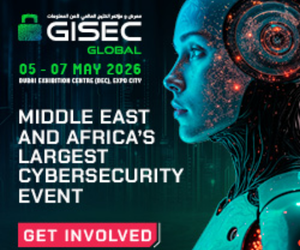Two Portuguese Founders Share Their Silicon Valley Success Stories
- Andreas Mueller
- Jun 30, 2025
- 7 min read
Updated: Jul 4, 2025

Startup News - Two Portuguese founders share their Silicon Valley Success Stories: while Silicon Valley continues to dominate startup headlines, some of the most innovative companies are being built thousands of miles away by founders who've mastered the art of global thinking with local execution.
From a Physics PhD to a startup with $14M Funding - This is how Micael Oliveira and João Mota built global companies from Portugal while bridging European talent with American ambition - according to a June 21st, 2025 report by Andreas Mueller, Managing Director of US company Bloofusion Digital Agency as well as Venture Growth Partner and Startup Mentor, reporting on the RedBridge Lisbon Summit at SHACK15.
Micael, co-founder of Amplemarket, and João, co-founder of VOID Software, shared their journeys from Portugal to Silicon Valley success, and back again, in a fascinating conversation with Jonathan Littman. Their stories offer invaluable insights for entrepreneurs navigating today's interconnected startup ecosystem - especially between two cultures.
The Unconventional Path to Entrepreneurship
From Academic Excellence to Startup Uncertainty
Micael's journey began in Coimbra, Portugal's historic university city, home to one of Europe's oldest universities dating back to the 1200s. After pursuing physics through his Master's degree and starting a PhD in high energy physics, he made a decision that shocked his family: taking a sabbatical to pursue startups.
"When I told my mom that I was taking a sabbatical from my PhD, she was like, 'Are you sure? Are you crazy? Don't do that,'" Micael recalls. This reaction perfectly captures the risk-averse mindset that many European entrepreneurs must overcome.
In 2014 - 2015, when startups weren't yet "a thing" in Lisbon, Micael and his two co-founders (all physicists and computer scientists from Portugal) decided to take the ultimate leap: applying to Y Combinator in Silicon Valley. They flew to San Francisco on their own dime for interviews and got accepted.
The Childhood Coder Who Never Stopped Building
João's path was different but equally compelling. Born in Leiria (which he proudly calls "the third best city" in Portugal), he received a ZX Spectrum computer at age six or seven. With no games available, he had to learn coding just to use it.
"I became the IT guy in my neighborhood," João explains. "My family thought I was some kind of wizard." His first paid software project came during summer holidays when a neighbor asked him to build delivery management software for a small company. Getting paid for coding "blew my mind," he says.
After a detour into wind energy that took him across Europe building greenfield projects, João eventually joined VOID Software, founded by a childhood friend. The serendipity? His friend had only made a handful of Facebook posts in his life, and João happened to catch the one about starting Void.
The Dual-Market Strategy That Changed Everything
Why Micael Chose Both Silicon Valley and Portugal
Amplemarket's funding strategy was unconventional: instead of choosing between American or European investors, they chose both. Micael and his team raised $14 million with Comcast Ventures as their main US VC and Armilar Venture Partners in Portugal.
"We knew there was a lot of untapped, really good engineering talent in Portugal," Micael explains. "In 2016 - 2018, the best students were going to McKinsey or Bain, not startups. We wanted to change that."
This dual presence strategy proved prescient. Today, Amplemarket employs 110 people globally, with the majority of engineers in Portugal, plus teams in Spain, Brazil, and the US. The financial impact is striking: their first Portuguese engineer, who was making $7,000 when hired at a $17,000 salary (considered "amazing" at the time), now earns $100,000.
João's American Market Focus
While Micael built bridges between markets, João focused laser-sharp on the US market from Portugal. His reasoning was simple: "American companies would recognize the value of our deep technology work and be willing to pay more than in Portugal or Europe."
Their first major client was in Los Angeles, working with Hollywood studios, and they're still clients today, "almost family" due to their intertwined history. When asked to be in LA in two days for a meeting, João immediately booked a flight. "Proximity is always very important," he says. "When someone asks you that, you see it as an opportunity, not as a challenge."
Innovation Models That Scale
The "MVP for Equity" Revolution
Void Software developed a breakthrough strategy for early-stage startups stuck in the classic catch-22: no funding to build an MVP, no MVP to get funding. Their solution? Build MVPs in exchange for equity stakes, becoming the "first investor" in promising ideas.
Two success stories illustrate this model's power:
Bout - The Boxing Bag with a Brain:
Starting with just an idea, Void built a proof of concept for a "boxing bag with a brain"—adding internal sensors, cameras, and using sensor fusion with computer vision to gamify boxing. Result? Bout raised 10.7 million euros in their seed round, setting a record in Portugal.
The White-Tailed Deer Hunting App:
Perhaps the most surprising success came from North Carolina founders with a niche idea: using AI to predict where white-tailed deer would appear for hunters. Built in three months for hunting season, the app gained 20,000 paid subscriptions ($60/year each) in its first month. Today, it's highly profitable with an estimated 200,000+ users and gained national attention when rescue teams used it during Hurricane Allen.
"I thought it was too niche," João admits about missing the equity opportunity. "It taught me never to underestimate market potential."
Building Ecosystems Beyond Major Cities
The "First in Village, Second in Rome" Philosophy
While most startups flock to major tech hubs, João chose a different path: building Void in Leiria, a city one hour north of Lisbon. His motto: "It's better to be first in the village and second in Rome."
This strategy paid off brilliantly. Void became the "top of mind place to work for any software engineer" in the local area, partnering closely with the university and avoiding the intense competition of Lisbon and Porto.
The ecosystem impact has been remarkable:
Co-founded Startup Leiria with the municipality
Now recognized as one of Portugal's top three innovation ecosystems
Supports over 120 startups annually
Attracts foreign entrepreneurs who recognize the local talent pool
Located strategically: one hour from Lisbon airport, 20 minutes from the beach
The Human Side of Scaling
When Growth Requires Difficult Decisions
Success brings complex challenges. Micael learned this when Amplemarket's growth required making one of the toughest decisions of his entrepreneurial journey: letting go of four VPs (Success, Sales, Product, and Engineering) on the same day to flatten the company structure.
"We read all the books that told us to hire lots of people and give them power," Micael reflects. "But at some point, you look back and realize the company doesn't represent your values anymore, and you're losing speed."
The decision to have founders return to direct management roles was painful but ultimately successful, realigning the company with its core vision.
Innovative Employee Well-being
Post-pandemic, Void noticed emerging mental health issues and employee turnover. Their solution was uniquely thoughtful: creating a "PsyOps" department by hiring a full-time psychologist with 20 years of experience.
The psychologist conducts one-on-one sessions with employees and created the "Workation" program—a quarterly lottery sending groups of six employees to work from destinations like New York, Miami, Copenhagen, Berlin, Amsterdam, and Greece for a week. The next destination: Malta!
The Portuguese Advantage
Resourcefulness as a Competitive Edge
Both founders emphasized a key Portuguese trait: resourcefulness. "Portuguese people have a 'figure it out' mentality," Micael explains. "You're in a tough situation, you'll figure it out with whatever you have at hand. You don't give up."
This quality proved invaluable when Void faced an "almost impossible" challenge: delivering a demo for a major Hollywood studio by Monday morning when it was already Friday. The demo required special search functionality for "a few terabytes" of blockbuster movie assets.
Their solution? An internal hackathon mobilizing 40 engineers to work 24 hours straight through the weekend. They delivered a functional proof of concept on Monday, demonstrating the kind of resourcefulness that makes Portuguese engineers valuable globally.
The English Language Advantage
Portugal ranks 7th globally in English proficiency, thanks to a historical decision during the dictatorship not to dub movies. This linguistic advantage, combined with strong technical education, creates a powerful combination for global business.
Cross-Cultural Lessons for Global Entrepreneurs
What Portuguese Startups Can Learn from Silicon Valley:
Embrace Risk: Portuguese culture tends toward risk aversion, even for job changes. Silicon Valley's risk-embracing mindset is crucial for startup success.
Scale Experience: Engineers in Silicon Valley have experienced "true scale problems" that Portugal's young ecosystem (only 10 years old) is still developing.
What Silicon Valley Can Learn from Portugal:
Science Before Business: European and Portuguese focus on deep scientific research before commercialization can lead to breakthrough innovations, as demonstrated by the AlphaFold team winning the Nobel Prize in Chemistry while staying in London instead of moving to San Francisco.
Deep-rooted Creativity: The Portuguese have this amazing knack to be able to create something out of nothing. A rare gift, especially compared to Silicon Valley. [I added this bullet point. Please indulge me.)
The Future of Global Entrepreneurship
Expanding Horizons
Both companies continue expanding globally. Void is making a strategic bet on the defense sector, applying fail-fast innovation approaches to traditionally conservative industries. They're also establishing subsidiaries in Switzerland and the UK, adding to their existing New York presence.
Micael continues growing Amplemarket while balancing entrepreneurship with raising five-year-old twin daughters in San Francisco's Hayes Valley, and maintaining his passion for science through Vermont's Library, a platform for sharing and annotating scientific papers that has generated 40 million impressions.
The AI Revolution in Science
Both founders are excited about AI's potential in scientific research. "AI is amazing for science," Micael notes. "You can have an AI that knows everything happening right now in the world from all the most recent papers. That's going to help research tremendously."
The recent Nobel Prize in Chemistry awarded to the AlphaFold team exemplifies this potential, showing how AI can accelerate scientific breakthroughs.
Key Takeaways for Modern Entrepreneurs
1. Geographic arbitrage works: Building in lower-cost locations while serving premium markets can create sustainable competitive advantages.
2. Dual-market strategies reduce risk: Instead of choosing between markets, consider serving both with tailored approaches.
3. Resourcefulness trumps resources: The ability to "figure it out" with limited resources often matters more than abundant funding.
4. Ecosystem building pays long-term dividends: Investing in local talent development and startup ecosystems creates sustainable competitive moats.
5. Cultural diversity drives innovation: Multilingual, multicultural experiences provide crucial empathy and perspective for global business.
6. Employee well-being is a competitive advantage: Innovative approaches to mental health and work-life balance attract and retain top talent.
The stories of Micael and João prove that in today's interconnected world, successful startups can emerge from anywhere. But they require founders who think globally while executing locally, who embrace both scientific rigor and business pragmatism, and who never stop figuring things out.
What aspects of their journey resonate most with your entrepreneurial experience? Email us to share your Success Stories!
Author: Andreas Mueller - Founder of Bloofusion Digital Agency



